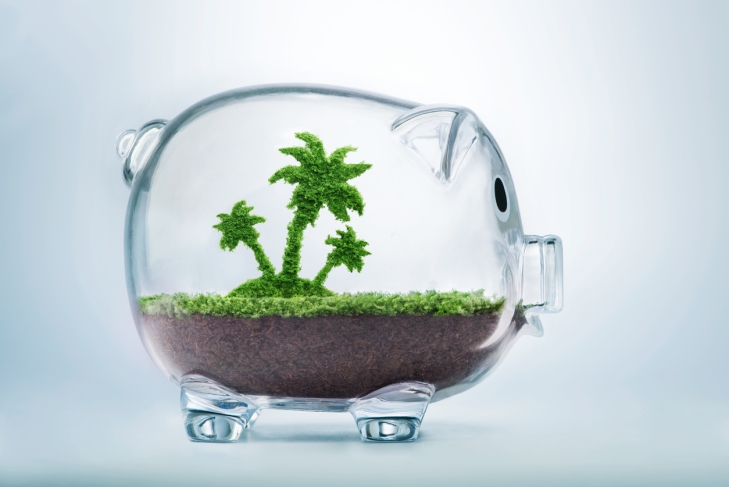
Even if you don’t believe in climate change, shifting consumer and governmental attitudes make businesses that prioritise sustainability more profitable
In a 2018 report, the World Bank estimated that climate change could force some 140 million people in the developing world to “move within their countries’ borders by 2050”. While some experts believe there is unlikely to be cross-border climate migration en masse, it could lead to what is called systems collapse.
“If that migration happens into Europe, for example, we have seen an indication of what might happen with the rise of right-wing parties, of closing down of global borders, and introspection; you have the beginnings of systems collapse,” observes Saker Nusseibeh, CEO at investment firm Federated Hermes.
Citing parallels to the end of the Bronze Age and the fall of the Roman Empire where “several things have gone wrong”, Nusseibeh notes current “tensions in the eastern parts of the hemisphere increase exponentially when there is a fight for resources, destruction of agricultural land, and migratory patterns”.
“It is dangerous, but not because the problem is not solvable – you can desalinate land and water. It’s a problem because of the domino effect that leads to this concept of systems collapse,” he says.
FOR LOVE…AND MONEY
Nusseibeh made those observations in the keynote speech at the recent SMU Business Families Institute (BFI) conference, “Building a Sustainable World – The Role Business Families Can Play” where he made the following point:
“If you want to hand your wealth to your children, you want them to live in a world that is stable and one in which they can enjoy the wealth you have worked for and created.”
Even if you don’t believe in climate change or that “I'm just concerned about making money”, Nusseibeh argues you should pay attention to how consumers and governments are reacting to it.
“The pattern among 20-year-olds [in the West] is to move away from meat and towards meat substitutes,” Nusseibeh points out. “The pattern for consumer clothes has changed. If you look at Instagram, there's a move away from buying new stuff to buying vintage stuff. That is a pattern. As investors, even if you do not believe in all of this, it is blind not to see that it has an impact, and it has an impact that affects future profitability of companies.”
Governments are also focusing on climate issues with many setting carbon Net-zero targets. The Task Force on Climate-Related Financial Disclosures (TCFD) framework, among many others, is used to regulate the investment sector. Regulation is inevitable, Nusseibeh asserts, because “governments at some stage will realise that [climate change will cause] geopolitical danger, and they have to do something about it”.
“What does that mean? That means opportunities. In the generation of electricity for example, you can think of solar energy, wind turbines, which companies make them etc.
“In food and agriculture, you could think of different ways of utilising land, different foodstuffs, or a shift in use. We talk about meat from the husbandry of very large cattle herds to the production of alternatives that taste like meat but are not meat.”
“A good investor, even if he doesn't believe in all of this, would position himself well to ensure they're on the right side of the equation.”
MAKING A DIFFERENCE
For investors who do believe in climate change and want to make a difference, Nusseibeh acknowledges the lure of divesting from oil companies and others that pollute the environment.
“That will make you feel good as an investor but it does not solve the problem,” he elaborates. “There are two problems that are not solved. One, it does not help the business evolve. Second, it doesn't solve the problem. For example, the carbon businesses: If you simply refuse to own oil companies, oil companies will not disappear.
“Over 30 years, we at Federated Hermes International have discovered that the best way to get change is to engage with companies, have a discussion with the Board and the executives about how to change the company.”
Nusseibeh adds that it is a long-term process requiring a long-term partnership mindset while highlighting “companies that we have engaged with have substantially outperformed the sectors that they are in because it is to the benefit of both”.
But he concludes: “Even if you disregard all that I have said about the environment, and you say, ‘My duty is simply to make money,’ this is the way to make money.”
Saker Nusseibeh was the keynote speaker titled “Investing Today for a Better Tomorrow” at the SMU Business Families Institute (BFI) conference, “Building a Sustainable World – The Role Business Families Can Play” that was held on 16 September 2021.
Repost from Perspectives@SMU